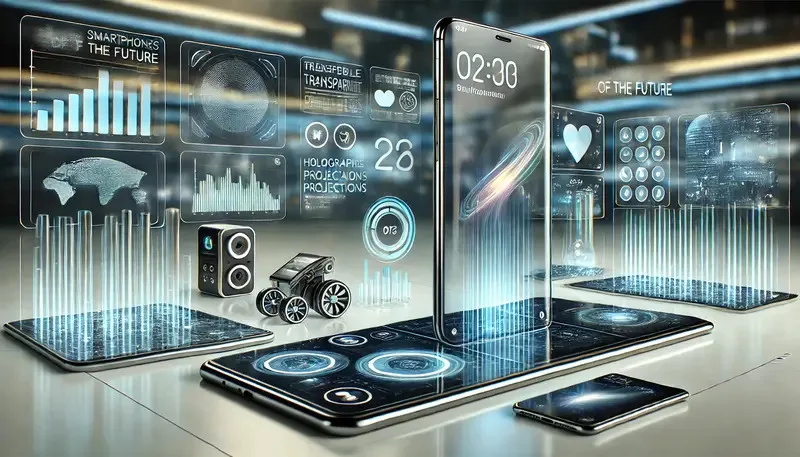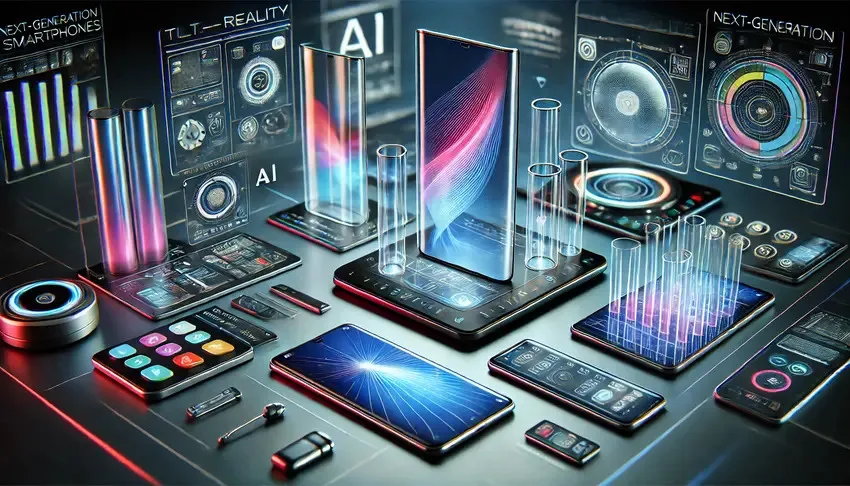
Smartphones of the Future: Trends and Forecasts for the Coming Years
The evolution of smartphones continues to reshape our daily lives, offering ever more advanced features and capabilities. With rapid technological developments, smartphones are set to undergo significant transformations in the coming years. In this article, we will explore the key trends, including the role of artificial intelligence (AI), design innovations, and the push toward sustainability, as well as the challenges that might arise in the development of these future devices.
Trends in the Development of Smartphones
Smartphones are expected to become even more integrated into our daily lives, with features that push the boundaries of functionality. Key trends include further improvements in 5G networks, foldable displays, and enhanced biometrics. Augmented reality (AR) and virtual reality (VR) features will likely play a larger role in gaming, shopping, and communication. Additionally, smartphones may evolve into hubs for managing various smart devices in the home, from lights to security systems.
Artificial Intelligence in Smartphones of the Future
Artificial intelligence (AI) is becoming the backbone of smartphone functionality. AI is already being used in voice assistants, camera systems, and app recommendations, but future smartphones will likely incorporate AI even more deeply. Predictive AI could optimize battery usage, manage apps automatically, and provide personalized recommendations based on user behavior. AI-driven chips will also enhance the speed and efficiency of devices, allowing them to process more complex tasks, such as real-time translations and advanced image recognition.
Predictions in Smartphone Design
Design will continue to be a focal point in the smartphone industry. The introduction of foldable phones was just the beginning—future designs may involve more flexible materials, transparent displays, and even stretchable devices. Mentioning Magic Planet online casino, future phones could offer immersive gaming experiences, combining AR/VR features with intuitive design for more engaging gameplay.
Greening and Sustainability in Smartphone Manufacturing
As environmental concerns grow, the smartphone industry is responding by adopting greener practices. Future smartphones are likely to use sustainable materials such as recycled metals and plastics, reducing the environmental footprint of production. Additionally, manufacturers are working on longer-lasting batteries and more energy-efficient devices, ensuring that smartphones will not only become more advanced but also more eco-friendly.

Possible Challenges and Risks of Smartphone Development
While the future of smartphones seems bright, there are several challenges on the horizon. One of the most pressing concerns is privacy and data security. With smartphones storing increasing amounts of sensitive data, developers must prioritize encryption and security measures to protect users. Additionally, the rapid pace of technological advancement may create issues with device compatibility and software updates, potentially leaving some users behind in the technological race.
The Future of Smartphones and Their Impact on Society
Smartphones will continue to play a crucial role in how we communicate, work, and interact with the world around us. As AI and other technologies evolve, smartphones will become even more personalized and indispensable. However, the integration of these devices into every aspect of life raises important questions about screen time, mental health, and the balance between digital convenience and real-world interaction.
In conclusion, the smartphones of the future promise exciting innovations in AI, design, and sustainability. However, it will be essential to address the challenges that come with these advancements to ensure that smartphones continue to enhance our lives rather than complicate them.
